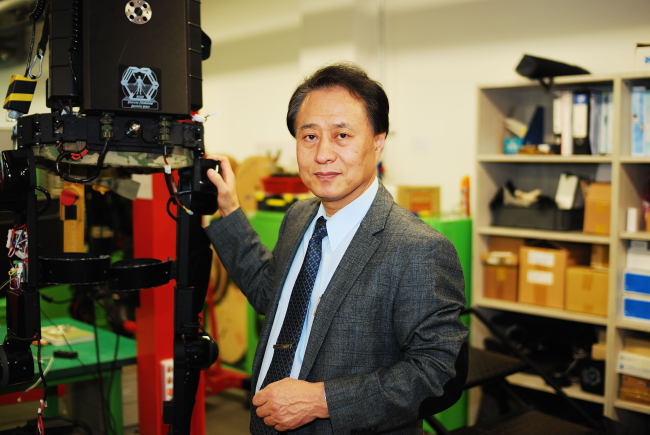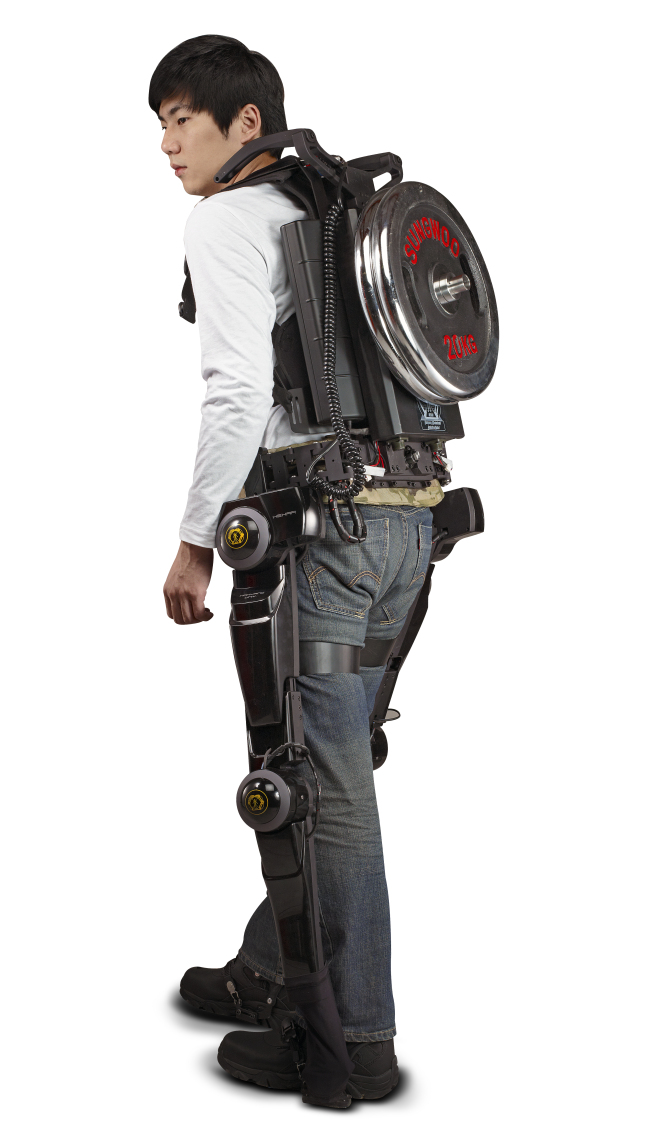In the blockbuster sleeper hit “Edge of Tomorrow,” soldiers wear full-body robotic armor to defend their world against alien invaders.
They may look ineffective in those heavy-metal suits, but the wearables boost their mobility and maneuverability to rapidly combat the creatures.
The wearable technology portrayed in the sci-fi war movie will soon become real and make its way into every part of daily life, said a robotics professor who developed South Korea’s first exoskeleton.
The U.S., for instance, is testing “Iron Man” suits for its soldiers, while Japan has commercialized robotic wearables that can help the elderly to bend, pick up and carry heavy materials.
“The era of (wearable) robots will come soon, and people will see more robots being utilized in their daily lives for various purposes, such as health care, construction and military,” said Han Chang-soo, dean of the college of engineering sciences at Hanyang University Erica Campus in Gyeonggi Province.
 |
Han Chang-soo. (Hanyang University) |
Wearable robots, for example, will help construction workers easily carry heavy materials such as steel beams or bricks, while soldiers will be able to have robotic suits tailored to fit their bodies and roles.
The professor said the exoskeletons will have the biggest advantage over other robotic technologies, such as humanoid robots, as they do not need a super-fast computing system, which requires years of development.
“The exoskeletons can be powered by human intelligence and cognitive ability. The cooperation between the human and the machine is the core value of the wearable robotics,” he said.
 |
A robotic wearable suit developed by professor Han Chang-soo’s team of researchers at Hanyang University in Gyeonggi Province.(Hanyang University) |
Robotic suits for the upper and lower body developed by Han’s team of engineers at the university will be used to help hemiplegic patients undergoing rehabilitation at hospitals as soon as this year.
In a series of tests, paralyzed patients who underwent rehab programs with the gear showed improvement in their kinetic ability.
Human-augmentation suits have become slimmer and lighter than the first exoskeleton robot developed by Han’s research team in 2008. Some of them have even become portable.
“The suits will continuously evolve as they become less intrusive and more ergonomic in design than the existing ones,” he said.
The professor, however, said that Korea needs to step up efforts, such as by developing high-performance actuators and sensors, to further develop the robot industry.
“Reducing its reliance on foreign components and boosting the use of domestic ones will help lower research and development costs for robots,” he said.
By Kim Young-won (
wone0102@heraldcorp.com)









